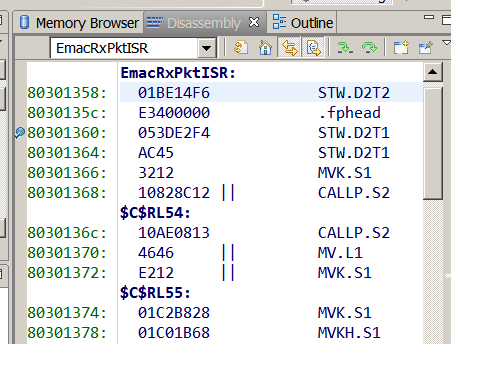Hi, I am using UDP to send data from PC to c6678 EVM board. I start from the hellowrold sample program in MCSDK package and modify the daemon call back function. The PC site program send 1040 byte packet continuously to the board. My experiment shows that the data transmission was hang after 20 minutes running. has anyone encounter the same problem before?
NDK version: 2.22.3.20
sys/bios version: 6.35.1.29
xdc version:3.24.7.73


